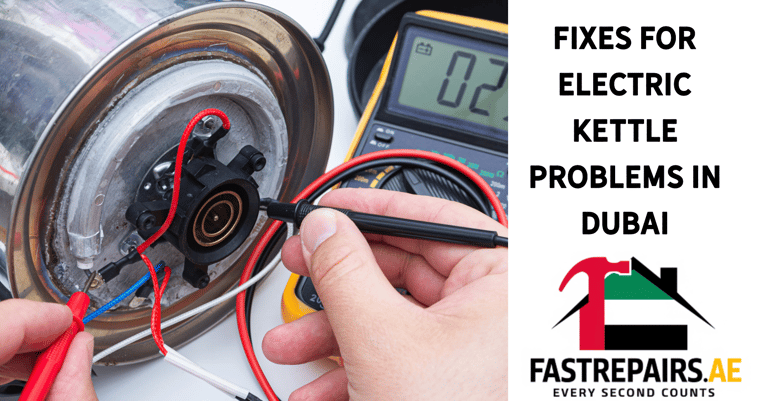Quick Fixes for Electric Kettle Problems in Dubai
FastRepairs.ae resolves kettle leaks, lime scale, and heating failures. Affordable repairs with 6-month warranty.
REPAIRS
4/4/20258 min read
Understanding the Impact of Hard Water on Electric Kettles
Hard water, which contains high concentrations of minerals such as calcium and magnesium, is a prevalent issue in many regions, including Dubai. When electric kettles are frequently used with hard water, they can encounter several challenges that not only affect their performance but also reduce their lifespan. Over time, the minerals in hard water can accumulate and form scale deposits inside the kettle. This scale buildup can significantly hinder the kettle's efficiency and effectiveness, leading to longer boiling times and increased energy consumption.
One of the primary issues associated with using hard water in electric kettles is the reduced heating efficiency. When scale deposits line the heating element, it becomes less effective at transferring heat to the water. As a result, users may find that it takes longer for water to reach boiling temperatures, which can be particularly frustrating in situations where time is of the essence, such as in a busy kitchen environment or during a tea ceremony.
Moreover, the accumulation of calcium and magnesium can lead to other problems such as a change in the taste of the water, which may affect beverages like tea and coffee. The presence of scale can also cause the kettle to work harder, leading to increased wear and tear, which may subsequently necessitate repairs or replacement sooner than anticipated. Therefore, it is crucial to address the issues arising from hard water promptly. Regular descaling and maintenance can help mitigate the impact of hard water, ensuring that electric kettles function efficiently and safely.
By understanding the effects of hard water on electric kettles, users in Dubai can take appropriate measures to enhance both the performance and longevity of their appliances, ensuring a reliable source of hot water for various needs.
Descaling Techniques for Efficient Kettle Maintenance
To ensure the longevity and efficiency of electric kettles, it's essential to regularly descale them, especially in areas like Dubai where hard water is prevalent. Hard water can lead to limescale buildup, affecting the kettle's performance and eventually leading to a malfunction if not addressed. There are several methods available for descaling, including both homemade solutions and commercial products.
One effective homemade solution involves using white vinegar. To implement this descaling method, fill the kettle halfway with equal parts of water and white vinegar. Allow the solution to boil, and then let it sit for approximately 30 minutes. Afterward, pour the mixture out and rinse the kettle thoroughly with fresh water to eliminate any vinegar smell. This process can help dissolve limescale and restore the kettle's efficiency. It is advisable to use this method every 2 to 4 weeks, depending on the frequency of kettle usage and water hardness.
Another DIY option is baking soda. Combine two tablespoons of baking soda with one liter of water and bring this mixture to a boil in the kettle. Following this, turn off the kettle and let the solution sit for an hour before pouring it out and rinsing with clean water. This technique not only aids in descaling but also neutralizes any unpleasant odors. Again, descaling with baking soda should occur every few weeks or as needed.
For those who prefer commercial solutions, there are various descaling agents available in the market specifically designed for electric kettles. These products are often formulated to tackle hard water deposits effectively. To use them, follow the manufacturer’s instructions, usually involving filling the kettle with water and adding the recommended amount of descaler, then boiling and rinsing as per the guidelines. Regular use of these descalers, about every three months, can significantly reduce limescale buildup and prolong the kettle's lifespan.
How to Replace a Heating Element in Your Electric Kettle
Identifying issues with the heating element of your electric kettle is crucial for ensuring its functionality, particularly in areas like Dubai where hard water can cause significant scaling and inefficiency. If your kettle is not heating water properly, the heating element may be damaged or malfunctioning. The first step in addressing this issue is to conduct a thorough inspection of the kettle, examining both the exterior and the interior components for any visible signs of damage, corrosion, or mineral buildup.
Once you suspect a problem with the heating element, ensure your kettle is unplugged for safety. Most electric kettles will have screws or clips securing the lid or base, so you will need a screwdriver or another appropriate tool to access the heating element. Carefully remove these components to expose the inner workings of the kettle. Observing the wiring connected to the heating element can also provide insight; frayed wires or burnt connections often indicate that the element is faulty and requires replacement.
Before purchasing a new heating element, it is essential to check compatibility. Different brands and models may have unique specifications, and using the incorrect heating element can further compromise the kettle's performance. Refer to the manufacturer’s documentation or label inside the kettle to identify the correct part number needed for replacement.
When installing the new heating element, ensure it aligns properly with existing connectors and that all screws or clips are securely fastened to prevent any water leakage. After completing the installation, conduct a test run by filling the kettle with water, plugging it in, and closely monitoring its heating capabilities. Taking these steps will help ensure that your electric kettle functions efficiently, mitigating issues associated with hard water in Dubai.
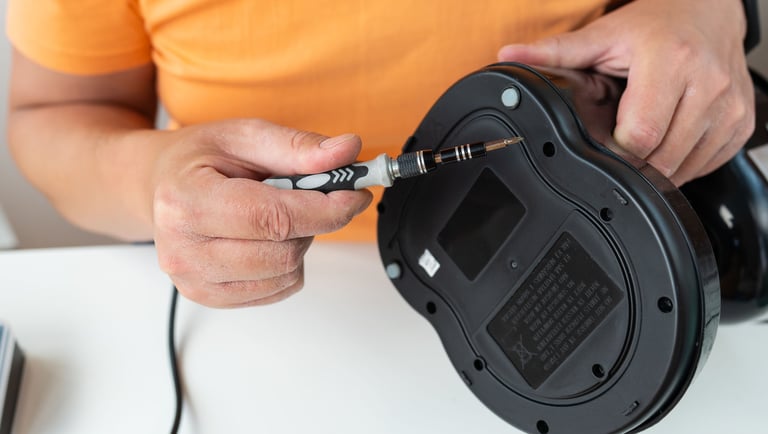

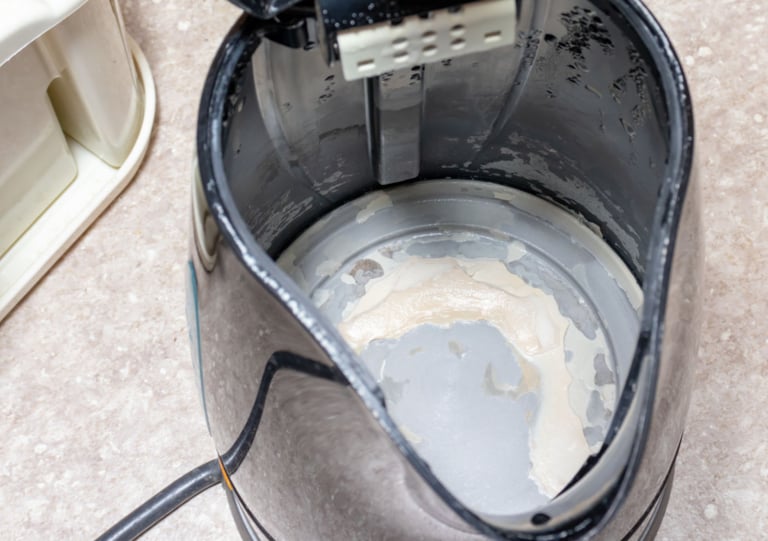

Troubleshooting Automatic Shut-Off Failures
The automatic shut-off feature in electric kettles is designed to enhance safety by preventing the device from overheating and causing potential hazards. However, users may occasionally encounter failures related to this function, particularly in areas with hard water like Dubai. Understanding the common causes of these failures can aid in effective troubleshooting.
One predominant issue that leads to automatic shut-off failures is a malfunctioning thermostat. The thermostat is responsible for regulating the temperature of the water, and if it becomes faulty, it may not accurately detect when the water reaches its boiling point. This can result in the kettle failing to shut off when it should, posing risks of overheating. Regularly testing the thermostat can help identify whether this component needs replacement or repair.
Another common culprit is the accumulation of mineral deposits due to hard water. These deposits, primarily calcium and magnesium, can build up on the heating element and other internal parts of the kettle. This buildup can interfere with the kettle's ability to sense the water temperature correctly, leading to automatic shut-off failures. Periodic descaling of the kettle using a solution designed to remove limescale can help mitigate this issue.
Additionally, electrical faults may also contribute to automatic shut-off problems. These can include damaged wires or a malfunctioning power switch. To ensure safety, it is crucial to examine the power supply and the internal connections for any visible damage. If the electric kettle still fails to function as intended after troubleshooting these common issues, it may be best to consult a professional service. Fast Repairs in Dubai specializes in appliance repairs and can provide expert assistance for more complex problems, ensuring your kettle functions safely and effectively.
Addressing Leaks in Electric Kettles | A Step-by-Step Guide
Electric kettles are convenient appliances, yet they are not impervious to issues such as leaks, especially in regions like Dubai where hard water can cause wear and tear. Identifying the source of a leak is crucial for effective repair. Common types of leaks include those from the kettle's base, the lid, or the water outlet. The first step is to conduct a visual inspection to pinpoint the leak's origin. Ensure that the kettle is unplugged and cooled before examining it.
One common cause of leaks is damaged seals. Over time, rubber gaskets or seals can become brittle due to mineral deposits from hard water. These deposits inhibit the seals' effectiveness, leading to water seeping out. If the leak is traced to a seal, replacing the gasket is often a straightforward solution. Many brands offer replacement parts that can be easily sourced, or they can be obtained through local appliance repair shops.
Another potential source of leakage is the body structure of the kettle. If the body has sustained a crack or dent, this may require more careful evaluation. Minor cracks may be sealed with waterproof adhesive, but if the damage is extensive, replacement of the entire kettle may be necessary. It is important to note that using a kettle that is leaking poses safety risks, including potential electrical hazards.
If after performing these inspections and minor repairs the kettle continues to leak, it may be time to seek professional assistance. Fast Repairs is equipped with expertise in handling various brands and types of electric kettles. Their experience with hard water-related issues provides valuable support for ensuring that the kettle operates efficiently and safely. Engaging professionals guarantees that repairs will meet quality standards and prolong the lifespan of the appliance.
Certified technicians with extensive experience.
24/7 emergency services.
Transparent and competitive pricing.
Let’s Get Started
Visit FastRepairs.ae or call us at +971528913379 to schedule your repair today. Experience seamless, stress-free service with FastRepairs.ae!
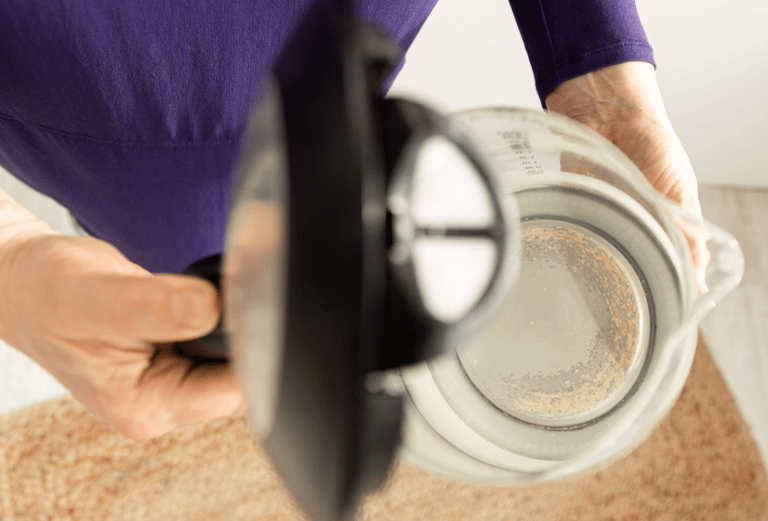

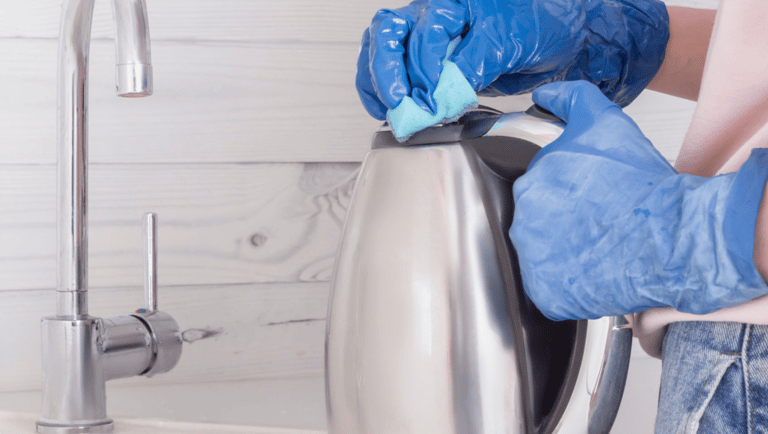

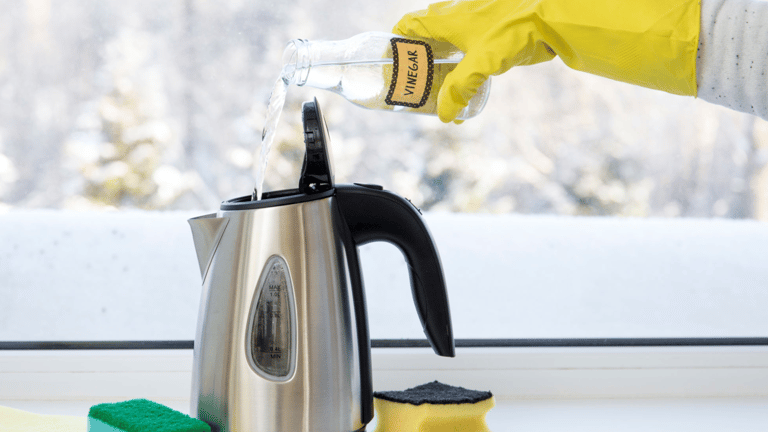



Preventative Tips for Prolonging Kettle Lifespan
To prolong the lifespan of your electric kettle and mitigate the effects of hard water, implementing a series of preventative maintenance strategies is essential. One of the most effective measures is to use filtered water when filling your kettle. Hard water contains high levels of calcium and magnesium, which can lead to the formation of limescale. By opting for filtered, distilled, or soft water, you can significantly reduce the accumulation of limescale inside your kettle, subsequently improving its efficiency and durability.
Establishing a regular descaling schedule is another vital component of kettle maintenance. Limescale buildup can lead to inefficient heating and eventual overheating of the kettle's heating element. Depending on the hardness of your water and your frequency of use, descaling every one to three months is advisable. Utilizing a descaling solution specifically designed for electric kettles can remove these mineral deposits effectively. Alternatively, a solution of equal parts white vinegar and water can serve as a natural descaler when used periodically. Just be sure to rinse thoroughly afterward to avoid any lingering flavors.
Proper storage practices are equally crucial for maintaining your kettle's longevity. After use, always allow your kettle to cool down before storing it to avoid thermal damage. Additionally, minimize exposure to moisture and storage in environments prone to humidity, as this can lead to corrosion of the internal components. If your kettle features a removable filter or lid, clean and dry these components regularly to prevent buildup and ensure optimal performance.
Finally, consider using your kettle for its intended purpose only. Avoid using it for other liquids or food items, which can lead to additional wear and tear. By applying these preventative tips, users can maintain their electric kettles effectively, preventing costly repairs or replacements and enhancing their overall lifespan.
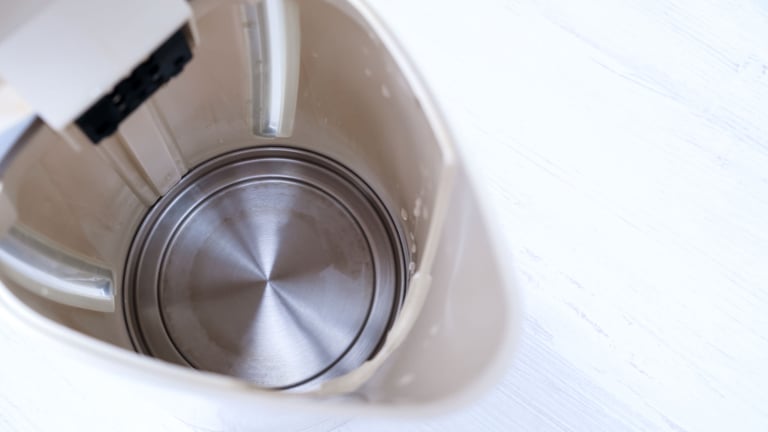

FastRepairs.ae
Reliable repair solutions for your needs.
Contact
Contact Form
contact@fastrepairs.ae
© 2024. All rights reserved.
This website is developed and managed by PranveraSolutions.
PranveraSolutions is not affiliated with fastrepairs.ae and is not responsible for any content, services, or actions of fastrepairs.ae. Any issues or legal matters should be directed to fastrepairs.ae
Hours
Monday, 9:30 am–8 pm
Tuesday, 9:30 am–8 pm
Wednesday, 9:30 am–8 pm
Thursday, 9:30 am–8 pm
Friday, 9:30 am–8 pm
Saturday, 9:30 am–7 pm
Sunday, 9:30 am–7 pm
Blog

